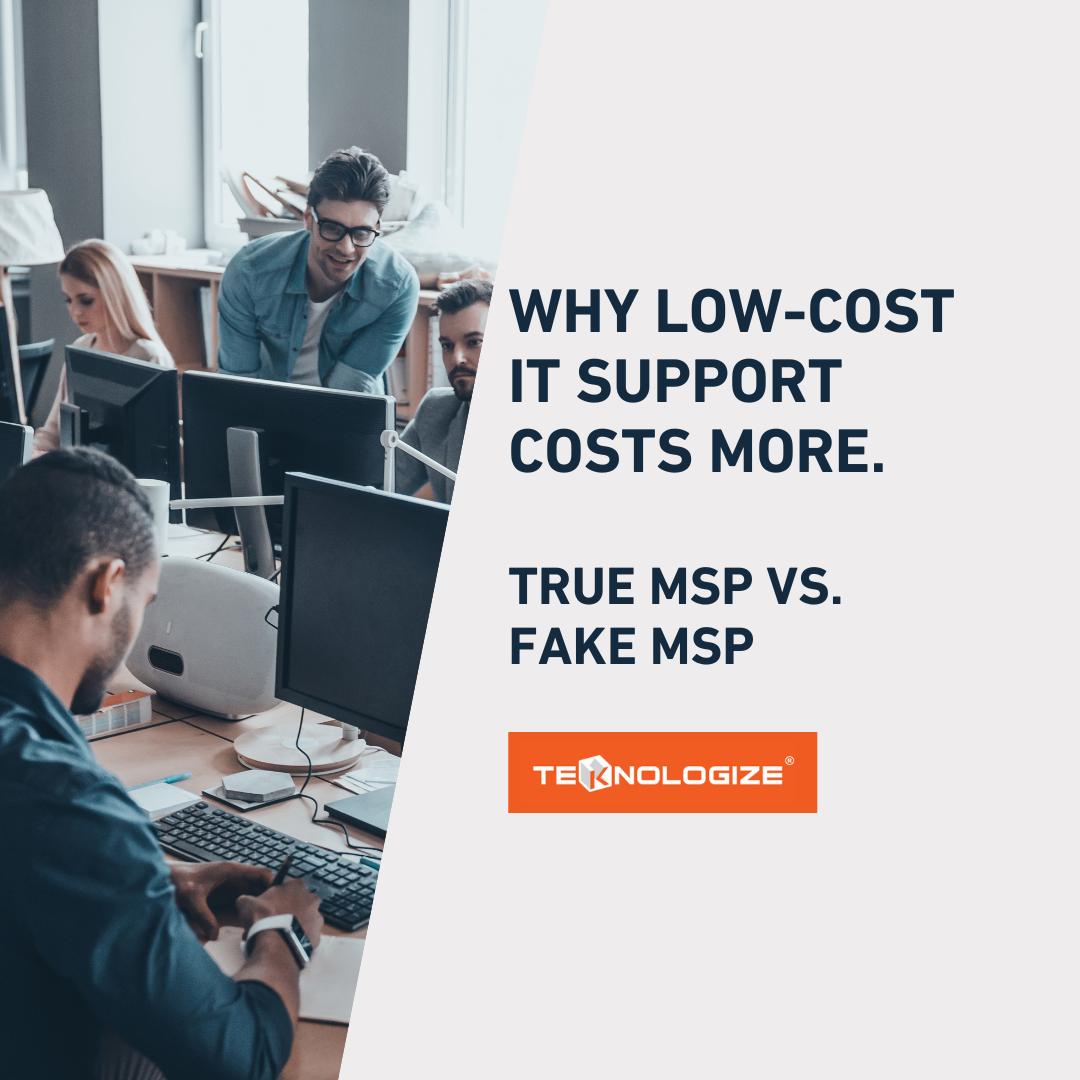Endpoint Detection and Response (EDR): Enabling Secure Growth for Small Businesses
Cybercriminals don’t go after businesses because they’re big.They go after businesses because they’re accessible. According to the IBM Cost of a...

With Black Friday and Cyber Monday right around the corner, here are some tips for a safe and secure online shopping experience.
Online security threats are a real concern when it comes to shopping online. It's important to understand the various threats that exist and take necessary precautions to protect yourself.
One of the key aspects of online security is being aware of the potential risks involved. Understanding common online scams, such as phishing attacks and identity theft, can help you identify suspicious activities and avoid falling victim to them. Additionally, staying updated on the latest security threats and trends can enable you to stay one step ahead of cybercriminals and protect your sensitive data.
By taking proactive measures and implementing effective security practices, you can protect yourself from potential threats and better protect yourself while shopping online.
One of the simplest yet most effective ways to enhance your online security is by creating strong and unique passwords.
Creating strong passwords that include a combination of uppercase and lowercase letters, numbers, and special characters can significantly enhance your account's security. It is advisable to avoid using easily guessable passwords, such as your birthdate or pet's name, and to change your passwords regularly to minimize the risk of unauthorized access.
Additionally, it's crucial to use different passwords for each of your online accounts. This way, even if one account is compromised, the rest of your accounts remain secure.
Even better, use a password manager. Password managers generate complex and unique passwords for you, store them all in one place, and tell you when you have weak, re-used passwords, or compromised passwords. They can also automatically fill credentials into sites and apps using a secure browser plugin.
When shopping online, it's essential to recognize secure websites to ensure your personal and financial information remains safe. Always ensure that the website you are visiting has a valid SSL certificate, which is indicated by the presence of a padlock icon in the address bar. This certificate encrypts the data transmitted between your device and the website, making it difficult for hackers to intercept and access your personal information.
Additionally, check if the URL starts with 'https://' instead of 'http://'. The 's' in 'https' stands for secure and indicates that the website encrypts data transmitted between your browser and the server. By verifying these indicators, you can be confident that you're shopping on a secure website.
Utilizing multi-factor authentication (MFA) adds an extra layer of security to your online accounts. By enabling MFA, you will be required to provide a second form of verification, such as a unique code sent to your mobile device, or one generated by an authenticator app, in addition to your password. This adds an additional barrier for cybercriminals trying to gain unauthorized access to your accounts, as they would need both your password and physical access to your second verification method.
We recommend using a phone-based authenticator app such as Microsoft Authenticator, Google Authenticator, or Duo. It’s far more secure than an SMS text message.
It's easier for a hacker to gain access to your text messages than it is to gain physical access to your phone. With that said, any form of MFA is better than nothing at all.
Using secure payment methods is crucial to protect your financial information when shopping online. Opt for trusted payment methods like credit cards or reputable online payment services. These payment methods offer additional layers of security, such as fraud protection and dispute resolution. Avoid sharing your credit card details or banking information through email or on unsecured websites. By using secure payment methods, you can minimize the risk of your sensitive information falling into the wrong hands.
Protecting your personal information is vital to maintaining online security. Be cautious about sharing unnecessary personal details while making online purchases. Only provide the required information for the transaction and avoid sharing sensitive information like your Social Security number or personal identification numbers. Always verify the website's security measures and ensure that your information is encrypted during transmission. By being mindful of what information you share, you can better protect your privacy.
Enhancing security measures is vital to safeguarding your online shopping experience. By understanding the importance of online security, creating strong passwords, recognizing secure websites, utilizing multi-factor authentication, and protecting your personal information, you can minimize the risks associated with online shopping and enjoy a safe and secure browsing experience.
Teknologize is a SOC 2 certified, Professional Technology Services company with clients throughout the Pacific Northwest. We have offices located in:
Questions about your IT or Cybersecurity? Give us a call today!
%20Enabling%20Secure%20Growth%20for%20Small%20Businesses.png)
Cybercriminals don’t go after businesses because they’re big.They go after businesses because they’re accessible. According to the IBM Cost of a...

IT Support Companies Can All Sound the Same, Until You Know What to Look For Business owners all want the same thing from their IT: reliability,...

Many SMBs don’t actually have an IT budget; they have a list of last year’s expenses. Everything goes into one bucket, and next year’s “budget” is...